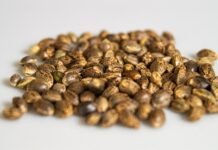As someone who values their health and wellbeing, it’s essential to stay informed about the nutrients that can support different aspects of our body. One such nutrient that has gained a lot of attention lately is omega-3 fatty acids. These essential fatty acids have been highlighted for their numerous health benefits, including their potential to support and maintain lung health. In this article, we will explore the importance of lung health, dive into what omega-3 fatty acids are, discuss their significance, and understand how they can positively impact our lungs.
The Importance of Lung Health
Before we delve into the specifics of omega-3 fatty acids and their role in supporting lung health, let’s first understand why our lungs deserve our attention. Our lungs are vital organs responsible for the exchange of oxygen and carbon dioxide in our bodies. They play a crucial role in delivering oxygen to our bloodstream and removing waste gases. Maintaining healthy lungs is essential for overall well-being and optimal functioning of our body. Lung issues, such as asthma, chronic obstructive pulmonary disease (COPD), and infections, can significantly compromise our quality of life. Therefore, taking measures to support our lung health should be a top priority.
What are Omega-3 Fatty Acids?
Omega-3 fatty acids are a type of polyunsaturated fat that our bodies require but cannot produce on their own. Therefore, it is imperative to obtain these essential fatty acids from external sources, such as our diet or supplements. There are three main types of omega-3 fatty acids: eicosapentaenoic acid (EPA), docosahexaenoic acid (DHA), and alpha-linolenic acid (ALA). EPA and DHA are primarily found in fatty fish like salmon, mackerel, and sardines, while ALA is found in plant-based sources such as flaxseeds, chia seeds, and walnuts.
Are Omega-3 Fatty Acids Important?
Absolutely! Omega-3 fatty acids are vital for our overall health and well-being. They have been extensively studied and shown to offer a wide range of health benefits. These healthy fats have been associated with reduced inflammation, improved heart health, better brain function, and now, as we will explore in detail, support for maintaining healthy lungs. Incorporating omega-3 fatty acids into our diet can be an excellent way to ensure we are providing our body with the necessary nutrients it needs to function optimally.
Omega-3 Fatty Acids and Lung Health
Now let’s focus on the specific role of omega-3 fatty acids in supporting and maintaining lung health. Research has shown that omega-3 fatty acids possess anti-inflammatory properties, which can be beneficial for lung health. Inflammation in the lungs can lead to various respiratory conditions, such as asthma and COPD. By incorporating omega-3 fatty acids into our diet, we can potentially reduce inflammation and support healthier lung function.
Additionally, omega-3 fatty acids have been found to help enhance the production of specialized molecules called pro-resolving mediators. These mediators play a crucial role in resolving inflammation and promoting tissue repair. By increasing the production of pro-resolving mediators, omega-3 fatty acids can aid in the healing process of damaged lung tissues and promote better lung health.
Foods Rich in Omega-3 Fatty Acids
To reap the benefits of omega-3 fatty acids for our lung health, it is essential to include foods that are rich in these healthy fats in our diet. Fatty fish like salmon, trout, and sardines are excellent sources of EPA and DHA. Aim to consume at least two servings of fatty fish per week to ensure an adequate intake of omega-3 fatty acids. If you prefer a plant-based diet, incorporate ALA-rich foods such as flaxseeds, chia seeds, and walnuts into your meals. These plant-based sources are also packed with nutrients and can provide a good amount of omega-3 fatty acids.
Incorporating Omega-3 Fatty Acids into Your Diet
Now that we know which foods are rich in omega-3 fatty acids, let’s explore ways to incorporate them into our daily diet. Start by adding grilled or baked fatty fish to your meals a few times a week. You can experiment with different recipes to keep it interesting and flavorful. If you prefer a plant-based diet or have dietary restrictions, try sprinkling ground flaxseeds or chia seeds over your breakfast cereal or yogurt. You can also add walnuts to your salads or use them as a topping for your favorite dishes. By being mindful of our food choices and intentionally including omega-3 rich foods, we can support our lung health effectively.
Supplements and Omega-3 Fatty Acids
While incorporating omega-3 fatty acid-rich foods into our diet is the ideal approach, some individuals may find it challenging to consume enough through food alone. In such cases, omega-3 fatty acid supplements can be a viable option. Fish oil supplements are widely available and provide a concentrated dose of EPA and DHA. It is important to consult with a healthcare professional before starting any supplement regimen, as they can guide you regarding the appropriate dosage and ensure it aligns with your specific health needs.
Other Benefits of Omega-3 Fatty Acids
In addition to supporting lung health, omega-3 fatty acids offer a myriad of other benefits. These healthy fats have been shown to improve heart health by reducing triglyceride levels, lowering blood pressure, and decreasing the risk of heart disease. They also play a crucial role in brain health, supporting cognitive function and potentially reducing the risk of neurodegenerative diseases. Furthermore, omega-3 fatty acids have been associated with improved mood and mental well-being, making them valuable for overall mental health.
Precautions and Considerations
While omega-3 fatty acids are generally safe for most individuals, it is essential to exercise caution and consider potential precautions. If you have any existing medical conditions or take medications, it is crucial to consult with your healthcare provider before incorporating omega-3 fatty acids into your diet or starting any supplements. They can provide personalized guidance based on your specific health needs and determine the most appropriate course of action for you.
Conclusion
In conclusion, omega-3 fatty acids play a vital role in supporting and maintaining lung health. These essential fatty acids offer numerous benefits, including reducing inflammation, promoting tissue repair, and potentially improving lung function. By incorporating omega-3 rich foods like fatty fish, flaxseeds, chia seeds, and walnuts into our diet, we can ensure our body receives the necessary nutrients to support optimal lung health. If needed, supplements can also provide a convenient and concentrated source of omega-3 fatty acids. However, it is essential to consult with a healthcare professional before starting any supplementation regimen. By prioritizing our lung health through the inclusion of omega-3 fatty acids, we can breathe easy and experience the benefits of improved overall well-being.
Call to Action: Take charge of your lung health today by incorporating omega-3 fatty acids into your diet. Consult with a healthcare professional for personalized guidance and embrace the benefits of optimal lung function.


























